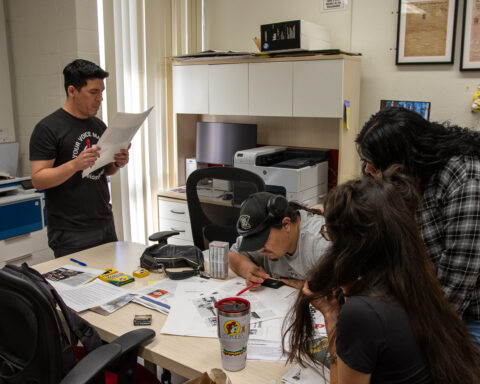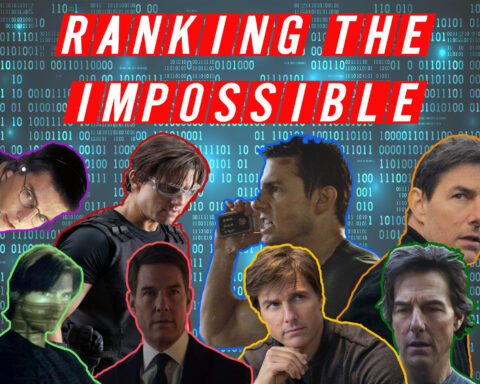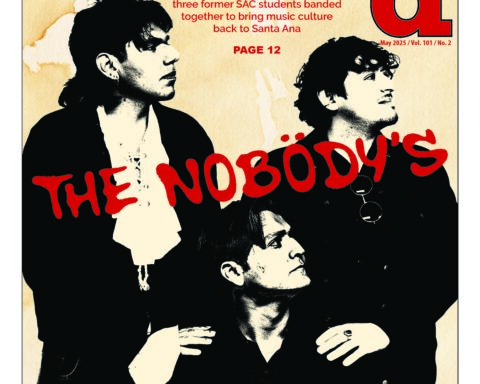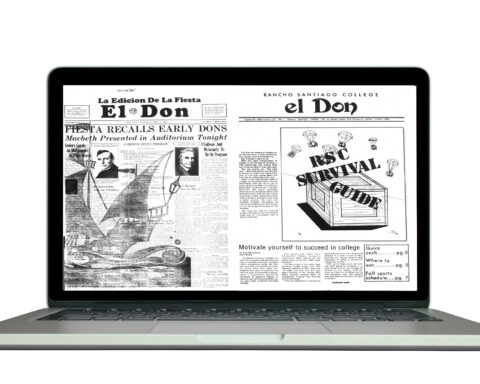
At el Don News, we’re not neutral about democracy. It fuels our commitment to serve the public, our belief in empowering an active citizenry — and our protection under the First Amendment to do our jobs. In the face of growing anti-democratic efforts have grown, journalists across the country are collaborating today on a project called Democracy Day. We’re highlighting both ongoing anti-democratic efforts and what can be done to stop them. This story is part of those efforts.
For our first assignment of the semester, reporters for Santa Ana College’s award-winning student media outlet were asked to gather and verify critical information that would help students navigate campus programs and services during the first few weeks of school.
Top of that list was Cash For Credit, a program that pays students to stay enrolled in classes. After reviewing the information available on the dedicated webpage, reporters had follow-up questions about how the program started, when the money would be distributed and how it was being funded. So they followed their journalistic training and reached out to the source for answers: the Financial Aid Office.
That’s when the wild goose chase for simple information began.
The Financial Aid Office referred an el Don reporter to Vice President of Student Services Vaniethia Hubbard. Hubbard referred their two questions to SAC’s Interim Public Information Officer Dalilah Davaloz, reiterating a policy to initiate all media requests through the PIO office. After a week of back and forth, Davaloz went on a three-week vacation, but not before referring the initial request to the district’s Interim Chief Communications Officer Nhadira Brathwaite, who sent the questions to SAC administrators asking to be pointed in the right direction for answers. The request was forwarded to Hubbard.
Nearly two weeks after our reporter’s initial email, Brathwaite forwarded an email response from Hubbard to the el Don reporter. It listed a disbursement date that was one day off from what was stated on the official Cash For Credit website.
Sadly, this runaround interaction to get questions answered has become typical for our student journalists, who are just trying to complete their homework and inform their fellow students about everything from free food on campus to loaner laptop programs to enrollment management plans.
It should not be this hard for the press to obtain critical public information. The district’s communication policy of prior restraint is having a chilling effect on our student media and stifling free speech at a public institution.
The First Amendment makes prior restraint, or efforts to suppress free speech before it is spoken, unconstitutional. To date, no court has ruled in favor of a body practicing prior restraint when challenged by the First Amendment. Certain information — such as any that could pose a security risk if made public and medical or student records — is off limits, but basic information regarding things done in the course of a public employee’s job is fair game, without getting explicit permission first.
In 1969 the Supreme Court ruled 7-2 in Tinker v. The Des Moines Independent School District that students retain their constitutional rights on a public school campus. In the majority opinion, written by then Justice Abe Fortas, he states: “In our system, state-operated schools may not be enclaves of totalitarianism. School officials do not possess absolute authority over their students.”
When these First Amendment rights are violated, they are done doubly so. Not only does it infringe on our rights as student journalists and deprive the student body at large of vital campus information, but it also chills the freedom of speech and expression of our faculty and staff.
Rancho Santiago Community College District even has an administrative regulation regarding student press that acknowledges that prior restraint is unconstitutional: “Under appropriate state and federal court decisions, these materials are free from prior restraint by virtue of the First Amendment to the United States Constitution.”
The district’s communication policy to filter all media requests through a press officer directly violates this board-approved regulation.
Outside of the clear illegality of the administration’s decision to try to micromanage communication between its employees and, well, anyone considered a member of the press, it is also a direct impairment to the education of students in the Communication and Media Studies Department. Student learning outcomes in all news media production courses require that students use diverse human, paper and electronic sources to report on deadline weekly.
By having to request anything we need through a public information officer, we aren’t only not using diverse sources, but we are unable to meet our strict homework deadlines and faculty are deprived of teaching opportunities.
The most infuriating part, however, may be in the type of information faculty and staff aren’t permitted to give us. The information we report on, more often than not, comes from community information needs assessments we complete as part of our coursework. That means we ask people in our community, in this case SAC students, what information they need but are having difficulty locating.
We aren’t trying to catch anyone in a lie or expose confidential information — we’re trying to let students know what services they can seek at the Thrive Center, where they can get a loaner laptop, why there isn’t a cafe for hot food on campus and how to get in touch with academic counselors.
Attempting to censor who we speak to and what about, not only impacts the el Don and public discourse at SAC but will have long-term repercussions for the media industry as a whole. The media has long been under scrutiny for its lack of diversity.
By depriving our students, mostly Latino, of the journalism education they need to compete with those from more prestigious institutions, it only widens the gap of representation and helps to ensure that the mass silencing of minority voices in mainstream media continues.
Moving forward, SAC needs to open lines of communication between student media and the college by reminding all employees of the role of a free press in a free society and their obligations as keepers of critical public information.
Student press must be afforded direct access to sources because this is how we learn to be reporters with integrity. Falling back on the same source over and over is not only poor practice, it reflects negatively on us professionally, ensuring that deeper questions are never answered and making us look like we don’t know how to find sources past the designated information handler of an organization.
We are the students of this college, who this administration is paid to serve. We are not the enemy. When the two are viewed as one and the same, it’s time to take a hard look at how the institution is run and why there is such contempt for those whose best interests it claims to represent.
Article updated Oct. 4, 2022: A previous version of this piece was missing a step in the email chain related to obtaining information about Cash for Credit. It also misstated the number of questions in the original request.
- Get your parking pass to avoid a ticket - February 13, 2024
- Vaccine mandate suspended for students and staff - November 23, 2022
- Cannabis cloud kitchen helps entrepreneurs break into the industry - November 2, 2022

















In the case of an organization requesting that all media inquiries go through one person in the communications department, this is not considered prior restraint, as it is not a government restriction. It is a media management policy set by the organization itself, and journalists or media outlets are free to accept or reject it.